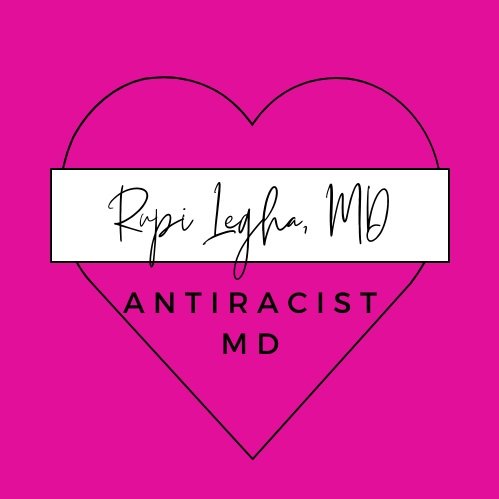Antiracist Parenting in Response to the Capitol Riots
The January 6th Capitol riots provoked strong reactions from pediatric health care providers and organizations about how to parent. Guidance centered on speaking to children honestly in an age-appropriate way, allowing them to express their emotional reactions and ask questions, promoting a sense of safety while limiting media exposure, and encouraging parents to manage their own emotional reactions so they could effectively support their children.
Unfortunately, following a year when Black Lives Matter became an international movement, structural racism and white fragility became part of the cultural lexicon, and COVID-19 illuminated deepening inequities in America, these recommendations were anything but antiracist. They do not equip parents to dialogue effectively about the racism and white supremacy that permitted the Capitol riots to happen. They do not cultivate the historical perspective critical for understanding why these events transpired. And they do not foster the knowledge and skills children need for considering how similar acts of racial terrorism can be prevented from transpiring in the future.
These oversights are concerning because parents’ actions and words, particularly in response to seismic historical events, can shape their children’s development in the years to come. Conversely, their silence can maintain and normalize the racism and white supremacy that allowed the Capitol riots to take happen in the first place.
So, how can parents open the door to antiracist parenting?
First, parents should recognize that children’s racial socialization and identity development begin early and that they play a pivotal role in shaping it. By three months of age, babies begin to notice and respond differently to people based on race; and by kindergarten, children show many of the same pro-white racial biases as adults. Parents are key decisionmakers regarding where their children live; with whom they play; and to which books, media, and entertainment they are exposed. They create the social milieu shaping children’s understanding of race and racism, which are the building blocks for engaging in antiracism. This developmental perspective empowers parents to engage in antiracist parenting early and often.
Knowledge of self and history construct the necessary foundation for antiracist parenting. If parents cannot dialogue about these concepts with adults, they will not be able to do so with their children. Me and White Supremacy and The Racial Healing Handbook help parents explore their own racial identity and prejudices while reviewing key concepts and definitions. They also cultivate skills for coping with the strong emotional reactions that naturally arise in response to discussions about racism. To explore racism’s deep historical roots, The 1619 Project is an ideal starting point. It helps reveal how the Capitol riots are part of a larger historical continuum of white supremacist, state-sanctioned violence. Cultivating knowledge of self and history are life-long endeavors, but these key resources can certainly help parents jumpstart the process.
With this foundation in place, parents are prepared to for the next step: sharing their knowledge to help children learn about race, racism, and white supremacy in an age-appropriate manner. Storybooks are an excellent resource for helping younger children notice differences in race, developing positive attributes to these differences, and discussing issues of fairness pertaining to racism. Movies and documentaries are valuable opportunities for older children to deepen their understanding of racial inequities and other intersecting forms of oppression. Parents’ traversing silence, normalizing conversations, and showing comfort with racism and white supremacy all invite children to deepen their understanding.
This knowledge then sets the stage for the last component of antiracist parenting: action, which, as we all know, speaks louder than words. Parents are already modeling antiracism by committing to their own learning while promoting their children’s. They can additionally model for their children calling out racism and white supremacy through conversations with friends, family, and neighbors. Finally, they can engage in activism, for which there are many outlets online, and encourage their children to do the same. Important historical figures, such as John Lewis, Rosa Parks, and Ruby Bridges, and contemporary young activists can inspire parents and children alike. If children witness their parents engaging in antiracism, they are more likely to participate in it themselves.
Pediatric healthcare providers and organizations’ response to the Capitol riots focused on mitigating children’s anxiety and distress in the here and now. But they did little to promote examining the past, grappling with the present, or developing the skills to construct a more just future. While antiracist parenting is a lifelong endeavor, the Capitol riots have the potential to open the door for parents willing to walk through it for the sake of their own children and for the sake of generations to come.
